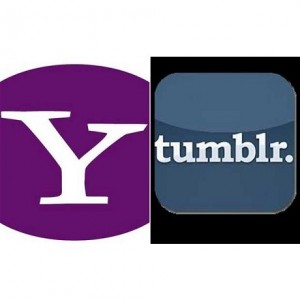 And so it came to be, Yahoo now owns the ultra hip social networking site Tumblr making David Karp one of, if not, the most successful high school drop out in the history of civilization.
And so it came to be, Yahoo now owns the ultra hip social networking site Tumblr making David Karp one of, if not, the most successful high school drop out in the history of civilization.
Some analysts see very little to no financial sense in the deal. After all, it took Tumblr more than five years to finally figure out a way to make money and when it did, it put more limitations than liberty, highly limiting who can and cannot advertise on their site. For one, founder David Karp refuses to just accept anyone’s money. No, $1 million advertising money won’t cut it. If you want to advertise on their site, you need to play the game the rest of their subscribers are playing, creative content and it has to be creative by David Karp’s standard because he gets the final say on whether or not an advertiser’s content is creative or not.
Not that those billionaires on suits can’t produce contents creative enough for Karp’s standards. Well, maybe they can’t but they have advertising agencies who can. Nonetheless, the “creative approval process” highly limits the income flow. To date, Tumblr is not profitable and Karp insists that “profitability isn’t something they are worried about right now”.
It has caused many to cringe. As “holy” as it may sound, everyone in the tech world knows that somehow somewhere, something’s gotta give. Karp will have to either come up with better tangible positive results coming off their clients’ creative ads or provide new advertising options to make it easier for advertisers to reach Tumblr subscribers.
When Marissa Meyer expressed her intention and fervent vow to leave Tumblr alone and allow Karp to “carry on” its vision, it prompted many to ask what is the real intention behind the purchase. It seems Meyer wants to run Tumblr the way Google is running YouTube, independently. However, it was understandable for Google to run it that way. Although YouTube was far from being profitable when Google purchased it, it was also clear that it was just a matter of refining the strategy before Google does make money.
Unlike Tumblr, Google didn’t restrict possible advertisers. Instead, it worked with something tangible to give users the ads relevant to them and the advertisers the users relevant to them, data. Just last year, it clocked in more than $2.4 billion in net revenue.
So now, the question remains. What is the point in all of this. Here are possible answers.
It is Yahoo’s bid to appeal to the younger market and stay relevant
Yahoo’s market share dropped from 17 percent to 10 percent since it dropped Google-powered result six years ago. It failed four times to dabble into Social Networking. During the last five years, the world has witnessed its desperate bid to find a leadership that would bring back their crown. The transfer for Meyer from Google to Yahoo seems logical on paper. Meyer, as far as we all know, remains friendly with her former bosses. That means Yahoo could benefit from partnering with Google in several of its services and applications.
More importantly, Meyer brings with her the knowledge that Google on how it could remain relevant. Tumblr is known as the hip guy in town, full of “artists” and “creative” content creators. Theoretically, that should spill over to the image of Yahoo.